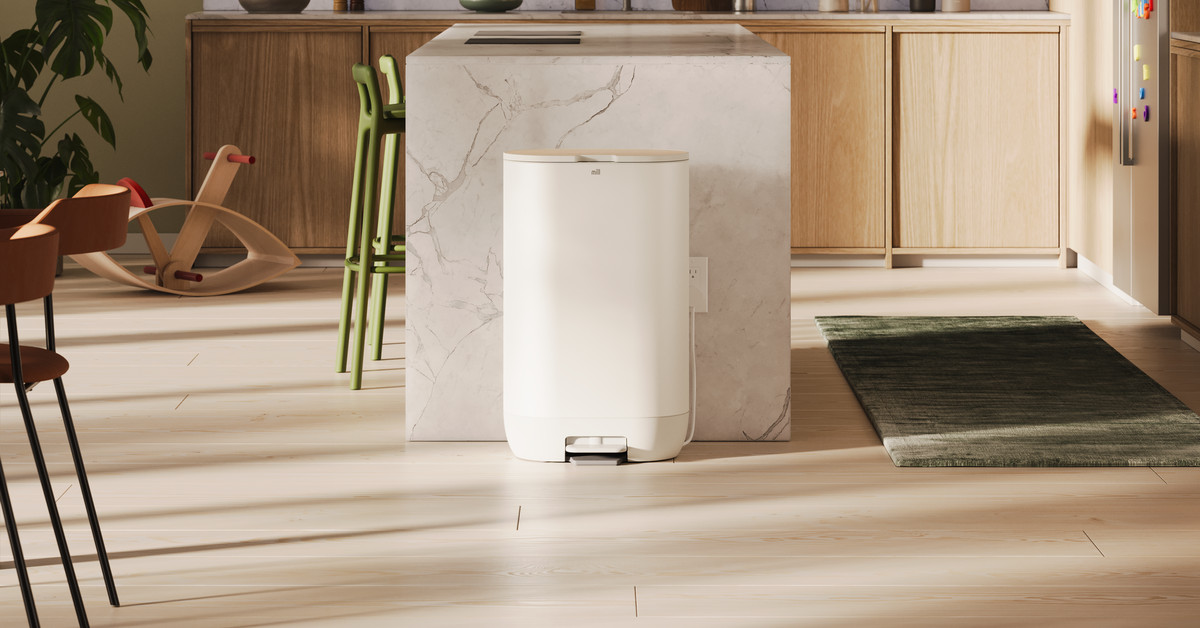
Last year when I reviewed Nest co-founder Matt Rogers’ new project, the Mill smart trash can, I was impressed with its food-grinding prowess. But I disliked its monthly subscription and that it wasn’t actually making chicken feed out of my food waste as promised.
A year later, the company is out with the second generation of the Mill, and it’s addressed both those issues. They’ve also made the bin smaller, faster, and quieter. However, it’s still silly expensive.
The second-generation Mill looks similar from the outside, but its internals have had a complete redesign. According to a press release, the Mill can now grind your leftovers up into a substance resembling coffee grounds in two and a half hours, much faster than the 10 hours it took when I tested the first-gen bin. It can also process 40 pounds of scraps before you need to empty it, and Mill says it’s more energy efficient, too.
An intriguing solution to the huge food waste problem in America, Mill is a glorified trash compactor / composter. But, rather than you depositing the food grinds it creates into your garden, where most compost goes, Mill wants to recycle your waste.
At launch, its main focus was turning that waste into commercial chicken food. This required Mill users to pay a subscription starting at $33 a month to ship their grounds to Mill in Washington state, where it was processed into chicken food.
When I tested the bin, Mill wasn’t actually making chicken food yet — but now they are. Last month, the company received its feed license from the Washington State Department of Agriculture.
However, if you don’t live in Washington and don’t want to ship your waste across the country, you can now buy the Mill to feed your own chickens or garden without paying a monthly subscription. There’s still a rental option starting at $29.99 a month paid annually ($49.99 if you pay monthly), but the new Mill is available to buy outright for $999. In either case, if you want to ship your grounds to Mill you still can, for $9.99 a month.
There are some expensive trash cans out there, but this one takes the cake (and can eat it, too)
The new price is a relative bargain compared to the first-gen model’s subscription-only offering that cost nearly $400 for the first year plus $33 a month thereafter for as long as you had the bin. But at a thousand dollars, it’s still too much. There are some expensive trash cans out there, but this one takes the cake (and can eat it, too).
Mill is also exploring some other local solutions to close the food waste loop. In Phoenix, it’s partnered with a local farm that will come and collect your grounds and use them on their fields as compost. And based on my conversation with Rogers last year, the company is actively looking to find other ways to distribute its food grounds more efficiently. While a high-priced, high-tech kitchen bin isn’t going to solve America’s food waste problem single-handedly, it’s at least a step in the right direction.
https://www.theverge.com/2024/3/5/24091220/mill-smart-kitchen-trash-can-second-generation-price-specs

